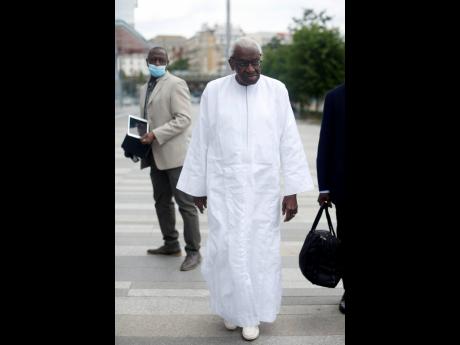Diacks’ trial exposes secrets of track golden era
PARIS, France (AP):
As Usain Bolt set the world ablaze, making athletics the hottest ticket at the Olympic Games, the sport was also being eaten from within.
That grim picture has emerged from a corruption trial in Paris that has shown how the thrilling era for track fans was poisoned behind the scenes by a father-son partnership at the top of World Athletics, then known as the IAAF, the international governing body that organises Olympic races and world championships.
Nine months before Bolt set the first of his sprint world records, then-IAAF President Lamine Diack signed an agreement in September 2007 to pay his own son US$900 per day – later increased to US$1,200 – for consultancy work. Armed with his father’s name and influence as a titan of Olympic sports, Papa Massata Diack set to work negotiating lucrative sponsorship deals for the IAAF.
In the process, prosecutors allege, the Diacks got rich, siphoning off revenue for themselves and lining bank accounts with hush money allegedly extorted from athletes who coughed up six-figure sums to avoid being sanctioned for doping.
The Diacks contest the corruption, money laundering and breach of trust charges examined in six days of hearings. The trial highlighted governance problems that have plagued sports in their growth from what were once amateur pursuits into a global mega-industry short on effective oversight.
ATHLETES HURT
The Diacks’ alleged malfeasance didn’t merely bite giant chunks out of IAAF revenues and trash its reputation as a leader in fighting doping, causing losses the governing body now values at €41 million (US$46 million). The court heard that athletes also were handicapped and hurt financially by having to compete against runners who should have been suspended for doping but instead benefited from a crooked system dubbed “full protection,” paying hush money to keep competing.
Two French former runners, Christelle Daunay and Hind Dehiba, are seeking damages.
Dehiba’s attorney, Florent Hauchecorne, described the trial as a milestone in ending the seeming impunity that long shielded sports administrators from criminal punishment.
“The problem is that sport has become an industry,” he said. “And in the background, there are the geopolitical interests of nations which, in the end, lead to the conclusion that the doping of athletes and helping athletes dope to win medals is no worse than employing secret services to intervene here and there.”

